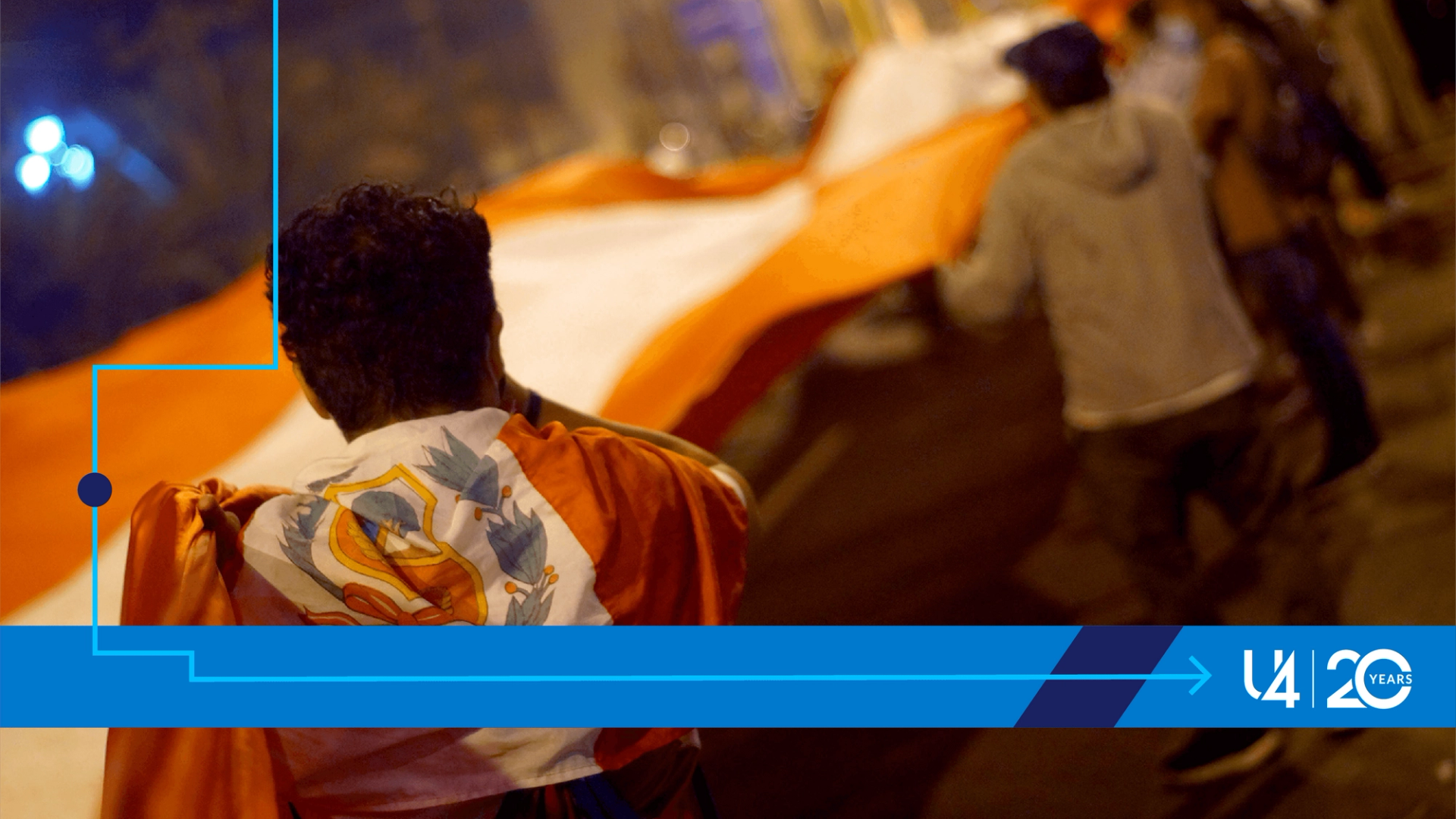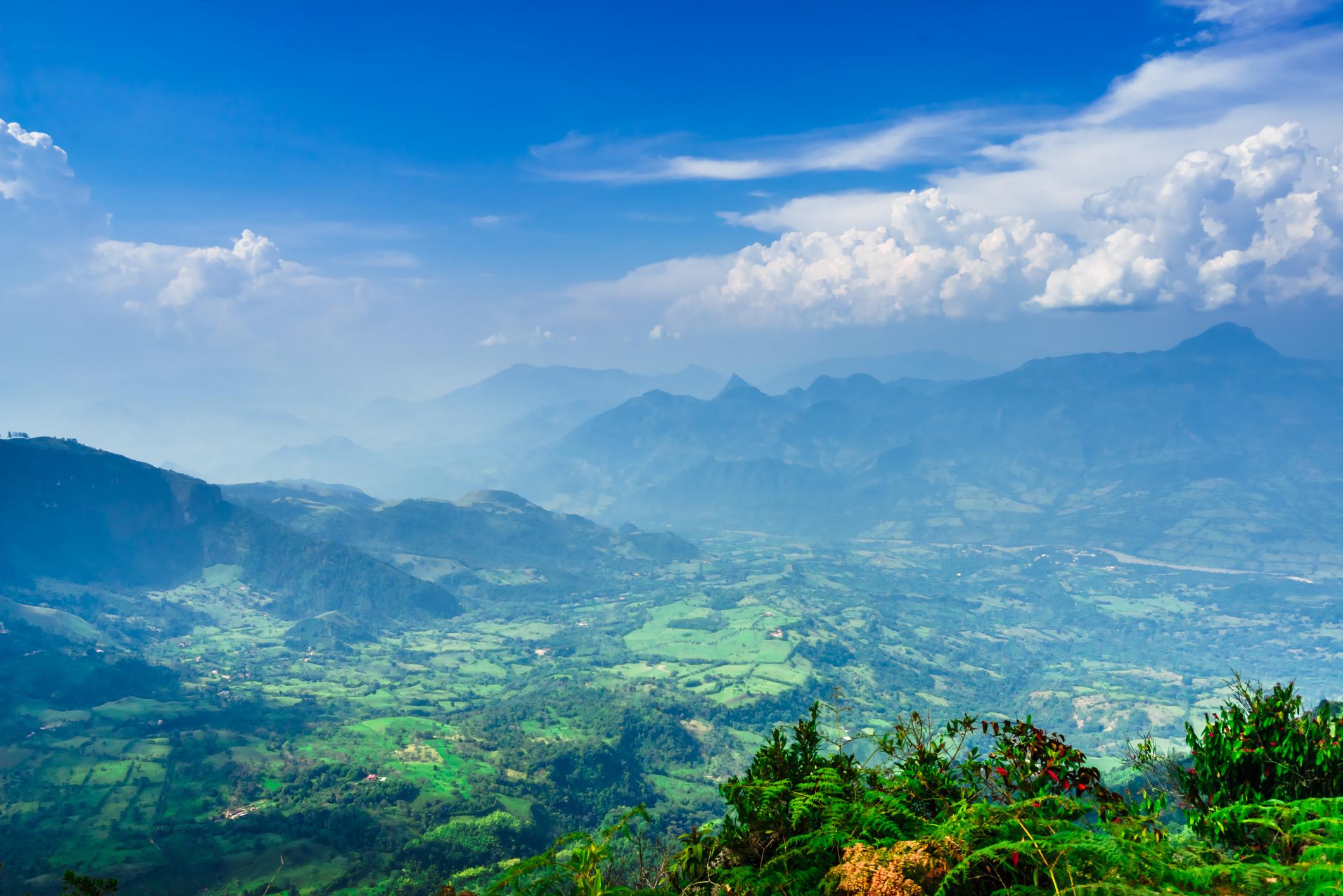Blog
Corruption is unaffordable for Latin America’s resurgent left: Democracy and lives are at stake

Anniversary blog series
U4 staff and friends celebrate U4’s 20th anniversary with a blog series reflecting on developments and lessons learned in a world of ever evolving corruption challenges:
- U4 at 20: A quiet birthday at home with friends (across the world) – Peter Evans
- Specialised anti-corruption institutions: Measuring their performance and managing our expectations – Sofie Schütte
- The role of technology in anti-corruption: Dystopian reflections – Daniel Sejerøe Hausenkamph
- Strategic litigation and its untapped potential for anti-corruption – Sophie Lemaître
- The anti-corruption community should become more ‘tribal’ – David Jackson
- Corruption risk management in the aid sector: past, present, and the path ahead – Guillaume Nicaise
- Corruption is unaffordable for Latin America’s resurgent left: Democracy and lives are at stake – Aled Williams and Daniela Cepada Cuadrado
- Corruption is absent from the UN ‘World of Debt’ report – Daniela Cepada Cuadrado
- Anti-corruption games: Learning how to face corruption challenges – Guillaume Nicaise and Rachael Tufft
- a) Gender and corruption: What we’ve learned from 20 years of research (Part 1) – Ortrun Merkle and Ina Kubbe
b) Gender and corruption: Charting the course for the next 20 years (Part 2) – Ortrun Merkle and Ina Kubbe
And other blogs to come throughout 2023!
Sign up to the U4 Newsletter to get updates, or follow us on Twitter | Linkedin | Facebook.
Voting patterns in Latin America have long shifted between left and right – often in response to grievances – and corruption has been a challenge across the political spectrum. If the resurgent ‘pink tide’ of leftist governments across the region fails to address corruption, their broader promise of more equitable societies will be undermined. If that happens, there is a risk that democracy will give way to more repressive governments.
Today, left-wing governments account for 90% of Latin America’s GDP and represent over 90% of its population. Left-wing leaders preside over the two largest economies: Mexico and Brazil. In Chile and Colombia, too, presidents Boric and Petro, respectively, represent a new progressive and pragmatic left. The extent of the left’s success in both Chile and Colombia is unprecedented. In Colombia, it is the first time a left-leaning government has gained power. In Chile, Boric received the highest number of votes in the country’s history.
The rise and fall of the first pink tide
Corruption and the mismanagement of resources are underlying factors that shape Latin Americans’ perceptions of institutions, and affect voting behaviour. The region’s first pink tide, at the outset of the 21st century, came to an end a decade later due, in part, to an overreliance on profits from commodity exports to fund social programmes. Major corruption scandals tainted politicians across the region too, including Operation Car Wash. Left-wing leaders failed to address the drivers of structural poverty, among other issues, and frustrated voters turned to the political right.
The new pink tide
Since 2018, similarly poor government has turned many Latin Americans away from conservativism, although with some important exceptions. For instance, Brazil turned to the right in 2018 with the election of Jair Bolsonaro, but with anti-corruption still an important pledge in his campaign. However, across the region, mismanagement of the Covid-19 pandemic exacerbated inequalities in health, education, water, and other public services. So, faced with rising poverty and unemployment, voters in many countries opted for left-wing governments promising greater social spending.
Left-wing governments in the region are not a monolithic bloc. Their agendas are diverse and diverge profoundly on issues like minority rights, climate action, and democracy itself. Nonetheless, their rise to power signals a call for a more equitable distribution of resources and opportunities, freer civic spaces, recognition of different populations’ needs, and broader access to power. These goals can only be attained if corruption is addressed.
Left-leaning governments face numerous threats to their stated policy agendas across the region. Acute political polarisation, rising US interest rates, geopolitical instability, and limited fiscal space are major concerns. But so too are allegations of corruption, voiced in Mexico, Colombia, Honduras, Argentina, and Peru. While corruption is historically a problem on both the right and left in Latin America, left-wing governments now in power must buck the trend to restore public trust and advance social progress.
The case of Peru
The latest twists and turns in Peru’s long-lasting political crisis provide some important lessons. Although the roots of the crisis lie in inequality, discrimination against Indigenous citizens, and centralisation, all of these are exacerbated by the pervasiveness of corruption. Most of Peru’s recent presidents are accused of corruption, and 88% of Peruvians believe that between half and all of their political leaders are involved in corruption, according to a 2021 survey. This is the highest percentage in Latin America. So, when left-leaning former president Castillo was ousted in December 2022 after his attempted ‘self-coup’, his supporters took to the streets leading to violent clashes with police and dozens of deaths. Castillo’s failure to effectively pursue anti-corruption reforms ultimately led to his downfall, with many on the right accusing him of corruption.
Regional trends: Resistance and slow progress
Events in Peru now seem to be inspiring several retired military officials in Colombia to challenge democracy. In May 2023, the former director of the Association of Retired Officers of the Colombian Military Forces, John Marulanda, expressed his approval for a similar coup against President Petro: “[In Peru] the reserves were successful in removing a corrupt president. Here, we are going to try our best to remove a guy who was a guerrilla fighter.” Marulanda’s remarks, made on national radio, speak of a more fundamental challenge: the fractious relationship between the president and Colombia’s conservative military forces.
For its part, the Colombian presidency has pushed for reforms that, as of today, have stalled. A corruption scandal involving former chief of staff Laura Sanabria, and Colombia’s ambassador to Venezuela Armando Benedetti, has hampered progress on several reforms in Congress, including in the health sector. In addition, the Attorney General’s Office is currently investigating the President’s son, Nicolás Petro, over allegations that he received money from a drug trafficker and allocated part of it to the presidential campaign. These scandals have tarnished the public image of the government’s anti-corruption stance.
In Honduras, meanwhile, Castro’s government has committed to re-establishing an international body to support national anti-corruption efforts. The previous body, MACCIH (Misión de Apoyo contra la Corrupción y la Impunidad en Honduras; Support Mission against Corruption and Impunity), saw their mandate discontinued in 2020. The new mission under Castro, CICIH (Comisión Internacional contra la Corrupción y la Impunidad en Honduras; International Commission Against Corruption and Impunity in Honduras), got off to a slow start, however. Despite her promises to prioritise the issue, it took almost a full year from her inauguration for Castro to sign CICIH’s foundational agreement (which she did in December 2022). And she did so with little engagement from civil society.
In July 2023, however, there was some progress on establishing the CICIH. A UN expert mission visited, met with the three branches of government, and consulted with civil society. Simultaneously, the government repealed a decree that had prevented the seizure and confiscation of documents or objects related to acts of corruption, and agreed on partial reforms to another decree which made it difficult to prosecute money laundering offences. Yet, there is still a long road ahead; the success of CICIH is on the line if the government does not repeal other decrees that have contributed to institutionalising impunity.
As tragically seen in Ecuador this year, politicians who take a stand against corruption – whether in the state, private or criminal spheres – face an uphill struggle in Latin America, frequently paying with their lives. Yet the alternative, in which neither the left nor right take on corruption through democratic means, could claim more lives and further erode public trust in institutions. Given the current balance of power in Latin America, it now falls to the left to realise this agenda.
Disclaimer
All views in this text are the author(s)’, and may differ from the U4 partner agencies’ policies.
This work is licenced under a Creative Commons Attribution-NonCommercial-NoDerivatives 4.0 International licence (CC BY-NC-ND 4.0)


